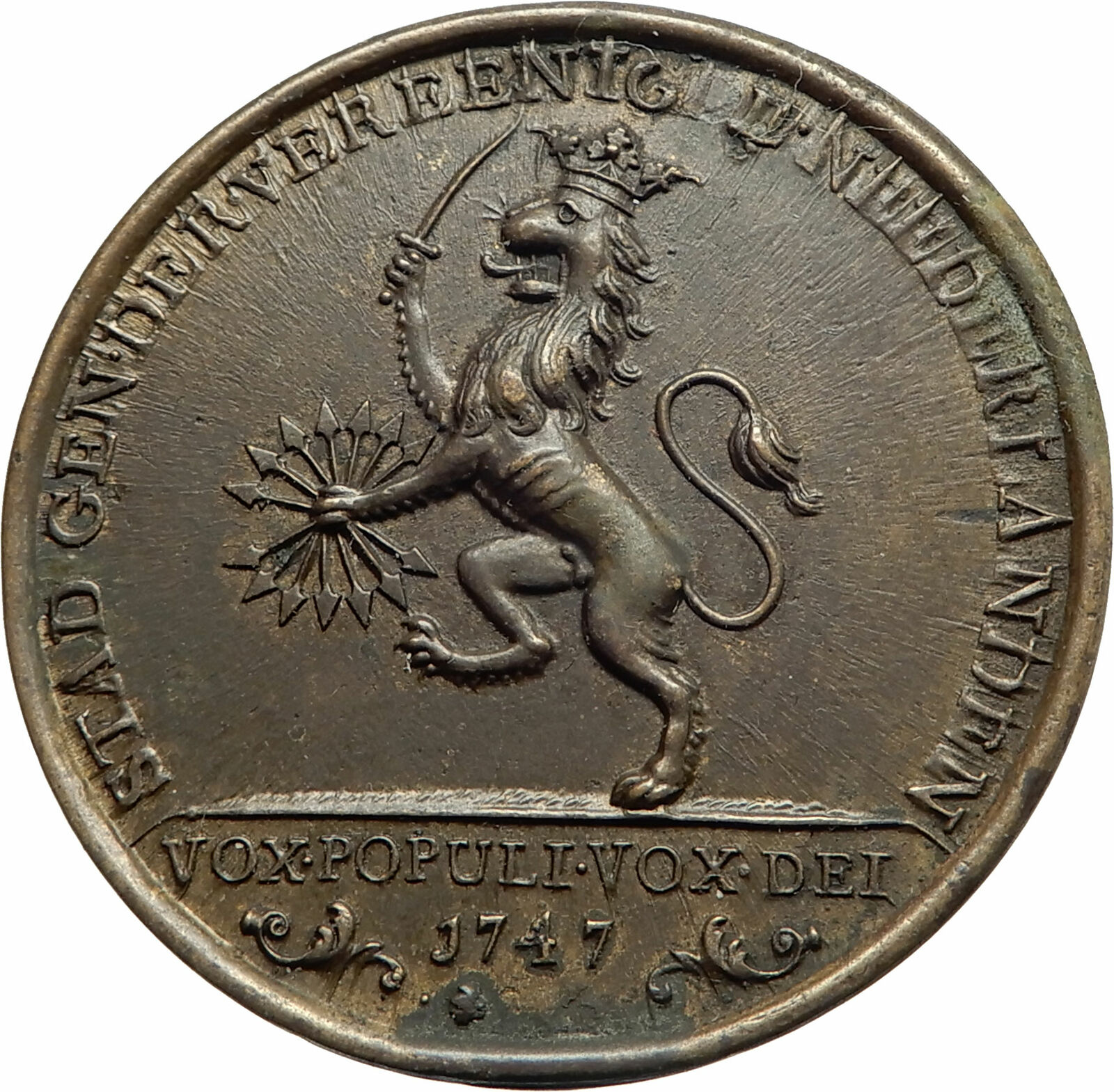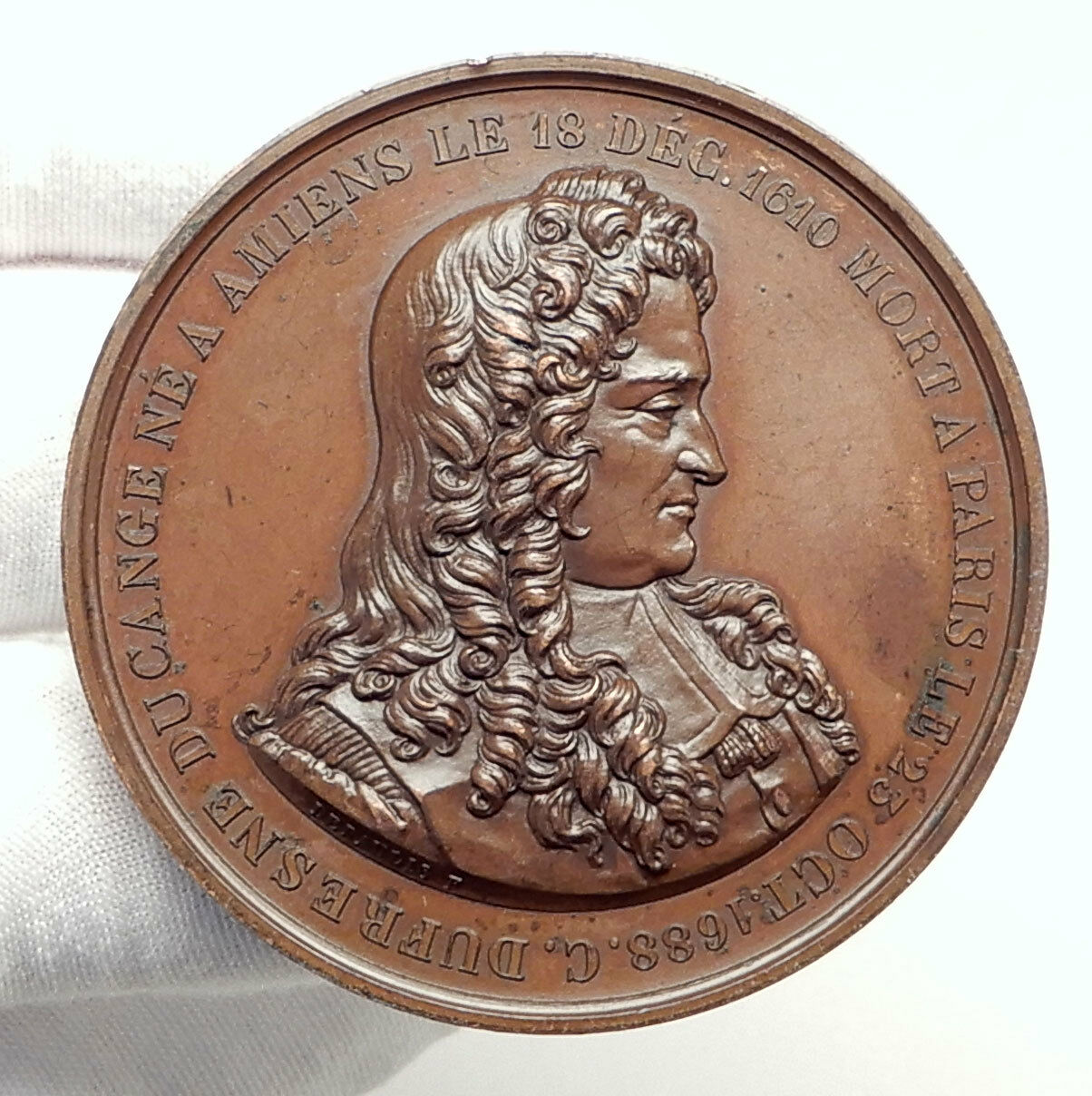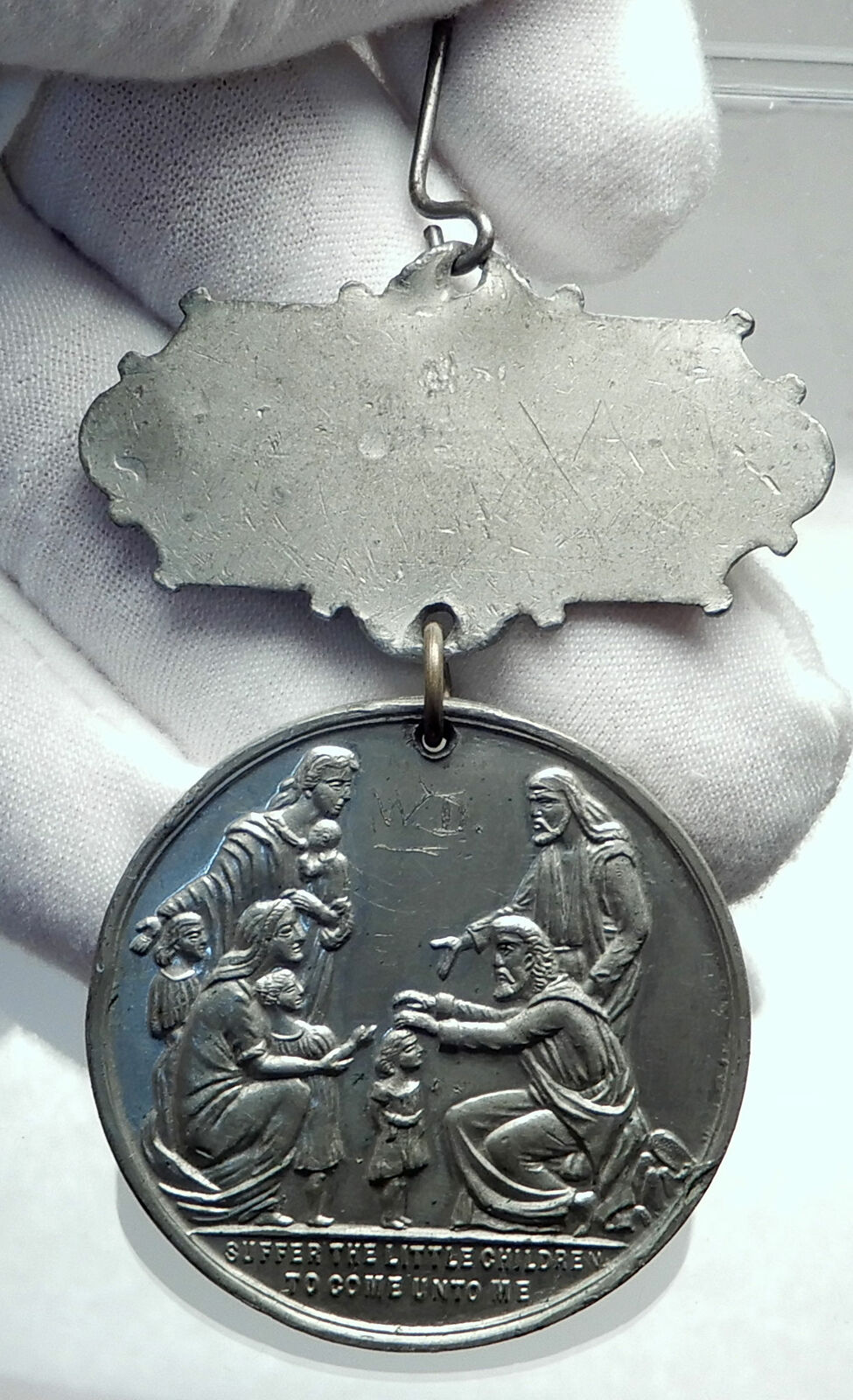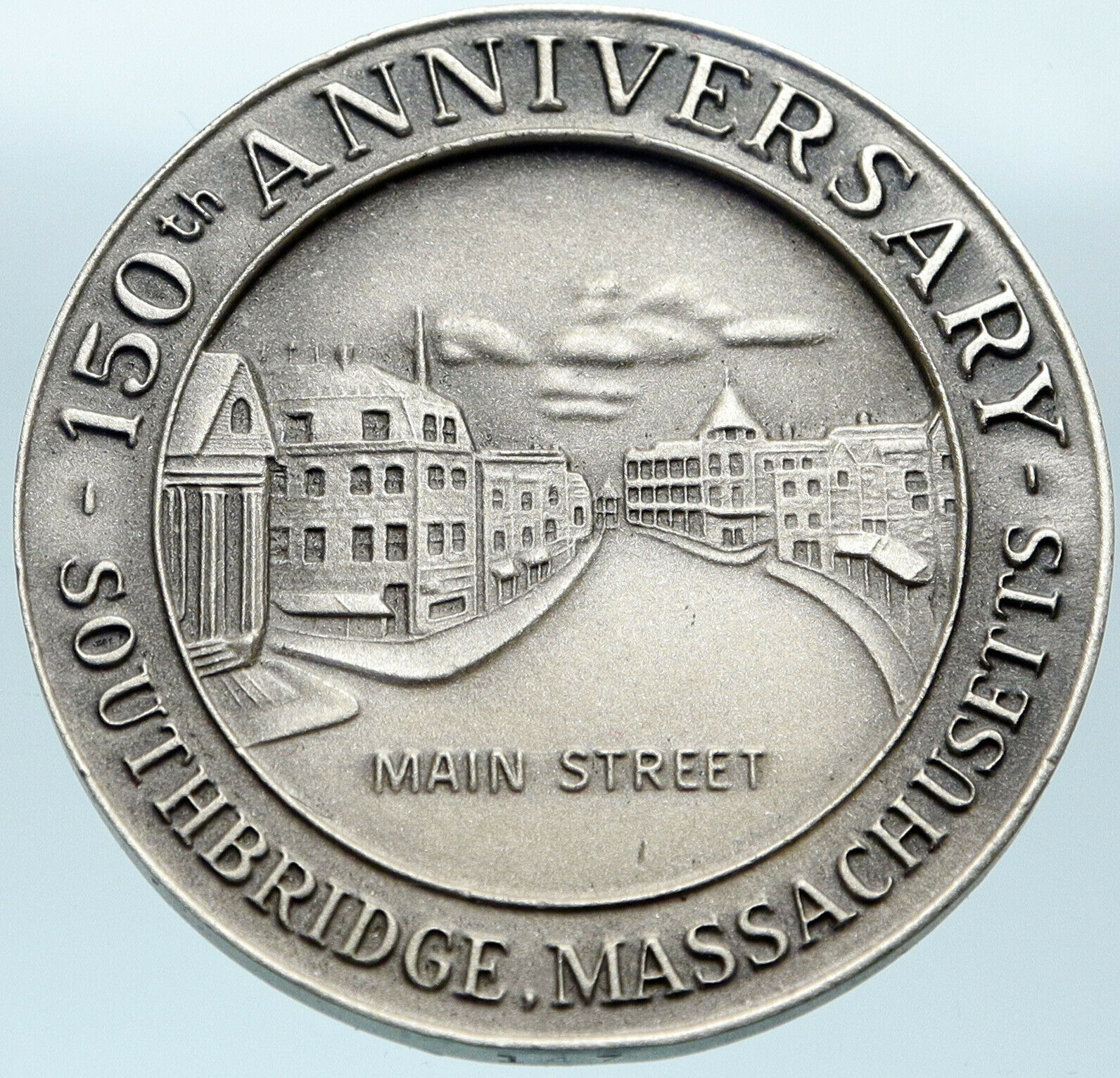|
France
North Africa Security and Order Operations Commemorative Medal
1958 Bronze Ribbon Medal 95mm x 30mm
ALGERIE RÉPUBLIQUE FRANÇAISE, French Republic warrior with helmet and oak leaf wreath.
MÉDAILLE COMMÉMORATIVE D’AFRIQUE DU NORD, Wreath.
You are bidding on the exact item pictured, provided with a Certificate of Authenticity and Lifetime Guarantee of Authenticity.
The Commemorative Medal for Security Operations and the Maintenance of Order (French: “Médaille Commémorative des Opérations de Sécurité et de Maintien de l’Ordre en Afrique du Nord”) is a French commemorative medal established in the late 1950s for award to members of the French armed forces and French civil servants under military authority for service in French North Africa during the hectic years that would become the end of French colonialism in the region.
The war in Algeria was and remains a sensitive subject for France, the events were only first openly officially identified as a war in 1999. The Médaille Coloniale (“Colonial Medal”) or Médaille d’Outre-Mer (“Overseas Medal”) were for service overseas and the Croix de Guerre (“War Cross”) was for service in wartime against an exterior enemy. There was no award at the time to recognize and reward combat service on what was essentially French soil. A medal was initially created by decree 56-1032 of 12 October 1956 and called the Médaille Commémorative des Opérations de Sécurité et de Maintien de l’Ordre en Afrique du Nord (English: “Commemorative Medal for Security Operations and Maintenance of Order in North Africa”). It was designed to fill this void and recognize their service in what was officially called a “police action” to quell disorder, rather than a military campaign against an armed and organized enemy. Decree 58-24 of 11 January 1958 modified the design and renamed the award to “Médaille Commémorative des Opérations de Sécurité et de Maintien de l’Ordre” (English: “Security and Order Operations Commemorative Medal”).
Under pressure for years by veterans’ organizations and from the personnel who served during the handovers in Tunisia and Morocco to get commemorative medals of their own, the French government finally ceded by a decree dated 26 July 2004 with an amendment to the 1958 decree governing the award. Rather than design a new medal for each operation in North Africa, the government decided to extend the eligibility, the existing medal could then be awarded to anyone who had served in North Africa during the 1950s and 1960s.
The North Africa Security and Order Operations Commemorative Medal was awarded to:
- members of the French armed forces for 90 days or more service in security and order operations in regular or reserve formations. The time factor is waived for those cited with the Cross for Military Valour or wounded as a result of these operations;
- governmental civil servants and of police services as well as those personnel placed under the authority of the military authority, or that participated in the operations proper as a result of their responsibilities or specialty, that met the aforementioned military prerequisites;
- sailors of the French navy placed under the orders of the IV region’s naval prefect for missions of at least 90 days in a 24-month period (added by a decree of 17 October 1960).
Five different gilt clasps could be earned and worn simultaneously when awarded.
- ALGÉRIE (English: Algeria) for 90 days service between 31 October 1954 and 1 July 1964
- TUNISIE (English: Tunisia) for 90 days service between 1 January 1952 and 2 July 1962
- MAROC (English: Morocco) for 90 days service between 1 June 1953 and 2 July 1962
- SAHARA (English: Sahara) for 90 days service between 31 October 1954 and 27 June 1961
- MAURITANIE (English: Mauritania) for 90 days service between 10 January 1957 and 1 January 1960
The medal hung from a ribbon passing through a wreath shaped ring through the medal’s suspension loop. The red silk moiré ribbon was 36mm wide with a 14mm central light blue stripe and two 5mm wide white stripes each 1mm from the edge.
  France, officially the French Republic (French: République française), is a sovereign state comprising territory in western Europe and several overseas regions and territories. The European part of France, called Metropolitan France, extends from the Mediterranean Sea to the English Channel and the North Sea, and from the Rhine to the Atlantic Ocean. France spans 640,679 square kilometres (247,368 sq mi) and has a total population of 67 million. It is a unitary semi-presidential republic with the capital in Paris, the country’s largest city and main cultural and commercial centre. The Constitution of France establishes the state as secular and democratic, with its sovereignty derived from the people. France, officially the French Republic (French: République française), is a sovereign state comprising territory in western Europe and several overseas regions and territories. The European part of France, called Metropolitan France, extends from the Mediterranean Sea to the English Channel and the North Sea, and from the Rhine to the Atlantic Ocean. France spans 640,679 square kilometres (247,368 sq mi) and has a total population of 67 million. It is a unitary semi-presidential republic with the capital in Paris, the country’s largest city and main cultural and commercial centre. The Constitution of France establishes the state as secular and democratic, with its sovereignty derived from the people.
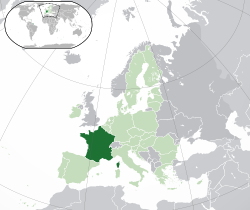
During the Iron Age, what is now Metropolitan France was inhabited by the Gauls, a Celtic people. The Gauls were conquered in 51 BC by the Roman Empire, which held Gaul until 486. The Gallo-Romans faced raids and migration from the Germanic Franks, who dominated the region for hundreds of years, eventually creating the medieval Kingdom of France. France emerged as a major European power in the Late Middle Ages, with its victory in the Hundred Years’ War (1337 to 1453) strengthening French state-building and paving the way for a future centralized absolute monarchy. During the Renaissance, France experienced a vast cultural development and established the beginning of a global colonial empire. The 16th century was dominated by religious civil wars between Catholics and Protestants (Huguenots).
France became Europe’s dominant cultural, political, and military power under Louis XIV. French philosophers played a key role in the Age of Enlightenment during the 18th century. In 1778, France became the first and the main ally of the new United States in the American Revolutionary War. In the late 18th century, the absolute monarchy was overthrown in the French Revolution. Among its legacies was the Declaration of the Rights of Man and of the Citizen, one of the earliest documents on human rights, which expresses the nation’s ideals to this day. France became one of modern history’s earliest republics until Napoleon took power and launched the First French Empire in 1804. Fighting against a complex set of coalitions during the Napoleonic Wars, he dominated European affairs for over a decade and had a long-lasting impact on Western culture. Following the collapse of the Empire, France endured a tumultuous succession of governments: the monarchy was restored, it was replaced in 1830 by a constitutional monarchy, then briefly by a Second Republic, and then by a Second Empire, until a more lasting French Third Republic was established in 1870. By the 1905 law, France adopted a strict form of secularism, called laïcité, which has become an important federative principle in the modern French society.
France reached its territorial height during the 19th and early 20th centuries, when it ultimately possessed the second-largest colonial empire in the world. In World War I, France was one of the main winners as part of the Triple Entente alliance fighting against the Central Powers. France was also one of the Allied Powers in World War II, but came under occupation by the Axis Powers in 1940. Following liberation in 1944, a Fourth Republic was established and later dissolved in the course of the Algerian War. The Fifth Republic, led by Charles de Gaulle, was formed in 1958 and remains to this day. Following World War II, most of the empire became decolonized.
Throughout its long history, France has been a leading global center of culture, making significant contributions to art, science, and philosophy. It hosts Europe’s third-largest number of cultural UNESCO World Heritage Sites (after Italy and Spain) and receives around 83 million foreign tourists annually, the most of any country in the world. France remains a great power with significant cultural, economic, military, and political influence. It is a developed country with the world’s sixth-largest economy by nominal GDP and eight-largest by purchasing power parity. According to Credit Suisse, France is the fourth wealthiest nation in the world in terms of aggregate household wealth. It also possesses the world’s second-largest exclusive economic zone (EEZ), covering 11,035,000 square kilometres (4,261,000 sq mi).
French citizens enjoy a high standard of living, and the country performs well in international rankings of education, health care, life expectancy, civil liberties, and human development. France is a founding member of the United Nations, where it serves as one of the five permanent members of the UN Security Council. It is a member of the Group of 7, North Atlantic Treaty Organization (NATO), Organisation for Economic Co-operation and Development (OECD), the World Trade Organization (WTO), and La Francophonie. France is a founding and leading member state of the European Union (EU).
|








 France, officially the French Republic (French: République française), is a sovereign state comprising territory in western Europe and several overseas regions and territories. The European part of France, called Metropolitan France, extends from the Mediterranean Sea to the English Channel and the North Sea, and from the Rhine to the Atlantic Ocean. France spans 640,679 square kilometres (247,368 sq mi) and has a total population of 67 million. It is a unitary semi-presidential republic with the capital in Paris, the country’s largest city and main cultural and commercial centre. The Constitution of France establishes the state as secular and democratic, with its sovereignty derived from the people.
France, officially the French Republic (French: République française), is a sovereign state comprising territory in western Europe and several overseas regions and territories. The European part of France, called Metropolitan France, extends from the Mediterranean Sea to the English Channel and the North Sea, and from the Rhine to the Atlantic Ocean. France spans 640,679 square kilometres (247,368 sq mi) and has a total population of 67 million. It is a unitary semi-presidential republic with the capital in Paris, the country’s largest city and main cultural and commercial centre. The Constitution of France establishes the state as secular and democratic, with its sovereignty derived from the people.


